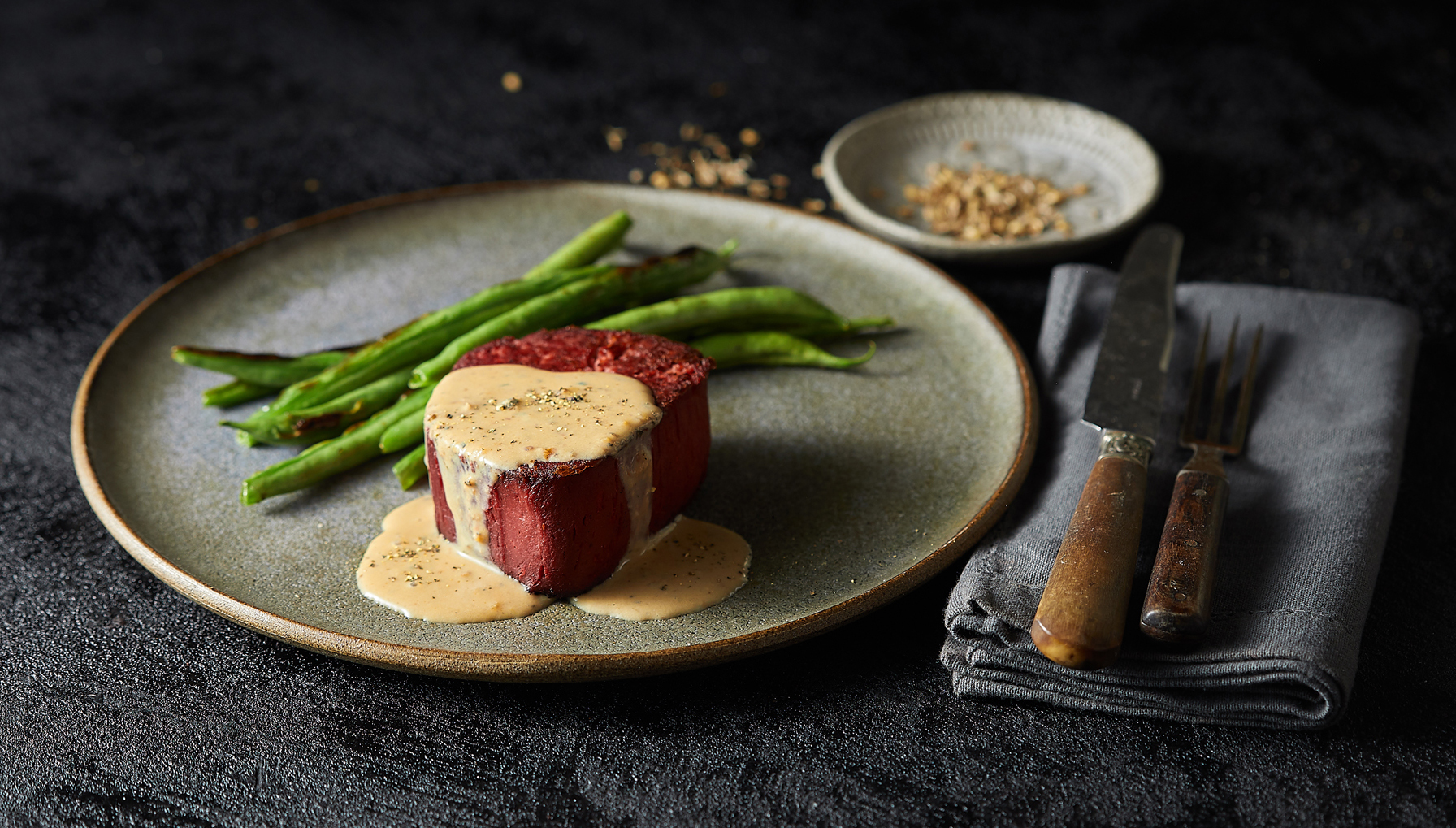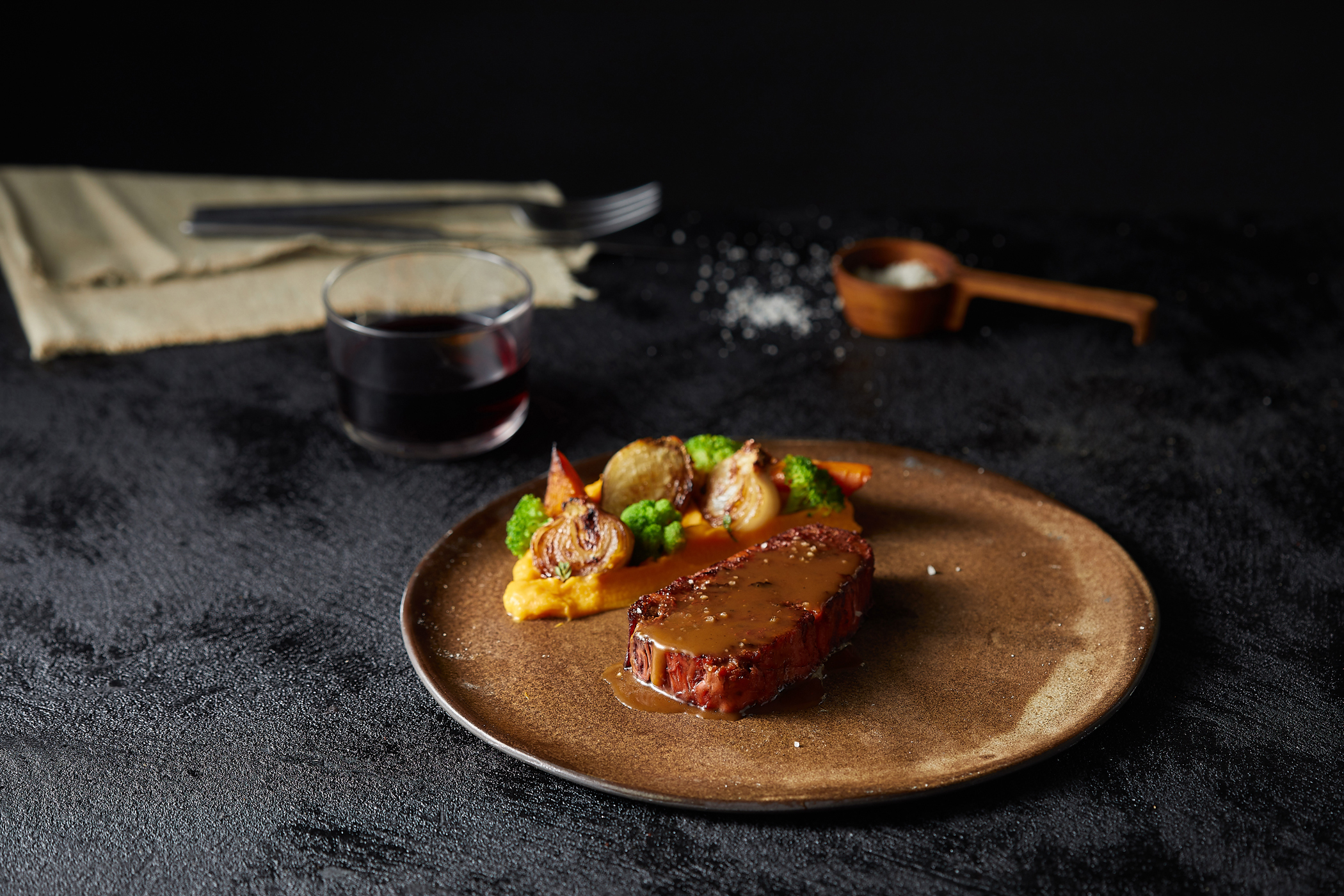Redefine Meat, a food 3D printing company focused on animal-free meat, has unveiled its first industrially 3D printed plant-based product – Alt-Steak.
The beef substitute was fabricated using the 2018 start-up’s patent-pending AM technology and will begin market testing at select high-end restaurants later this year. Readers interested in sampling the texture and flavor-replicating meat won’t have to wait too long as the company is expecting full market availability sometime in 2021.
Eshchar Ben-Shitrit, CEO and Co-Founder of Redefine Meat, states: “Since day one of the company, we have been working on creating a tasty and affordable plant-based alternative to steaks, one of the most cherished food products and the driver of the entire meat industry. To enable mass adoption, we knew that creating an alternative meat product that was both high in quality and nutritional composition would require new technologies and production processes never seen before in the food industry.”

Materials science or food science?
To truly replicate the taste and feel of a premium steak, Redefine Meat had to bring in some outside help. The company worked with a number of butchers, chefs, and food technologists (like flavor expert Givaudan) to digitally map more than 70 taste parameters into its 3D printed meat. This includes texture, fat distribution, mouthfeel, and even juiciness.
The Alt-Steak itself comprises the company’s own set of formulated plant-based ingredients: Alt-Muscle, Alt-Fat, and Alt-Blood. The resulting high protein, no-cholesterol steak aims to fulfil the holy trinity of looking, cooking, and tasting like beef.
Ben-Shitrit explains, “The importance of using precision 3D printing technology to achieve texture, color and flavor—and the combinations between them—cannot be overstated. By using separate formulations for muscle, fat and blood, we can focus on each individual aspect of creating the perfect Alt-Steak product.”

Scrumptious sustainability
So why do all this when there are plenty of cows roaming around? There are, of course, the undeniable ethical implications of raising cattle for slaughter but looking past that, Redefine Meat believes it’s a more efficient and sustainable method of meat production, both economically and environmentally. The company claims its alternative is 95% more sustainable than the real thing but will still cost significantly less.
Ben-Shitrit concludes: “Today’s announcement marks the start of a new era in alternative meat – the Alt-Steak era – driven by production processes that will accelerate the development of a wide range of alt-meat whole muscle products and create a sustainable alternative to raising and eating animals.”
The 3D printed food sector is virtually a non-existent one, but Redefine Meat is looking to change that. The Israeli start-up initially raised $6M in seed funding last year to further develop its proprietary 3D printer and has since printed and provided for multiple foodie events.
On the flipside, 3D printed food seems to be more in line with academia for the moment. Researchers in Sydney have 3D printed meals to be tastier and safer to eat for people with swallowing disorders (dysphagia). By pureeing the food and formulating an ink, the team leveraged the power of 3D printing to make the meals more visually appealing and less of a choking hazard.
The nominations for the 2020 3D Printing Industry Awards are now open. Who do you think should make the shortlists for this year’s show? Have your say now.
Subscribe to the 3D Printing Industry newsletter for the latest news in additive manufacturing. You can also stay connected by following us on Twitter and liking us on Facebook.
Looking for a career in additive manufacturing? Visit 3D Printing Jobs for a selection of roles in the industry.
Featured image shows the plant-based Alt-Steak. Photo via Redefine Meat.



